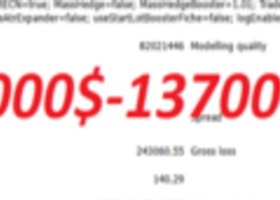
Week Ahead: Relative Value Trades With Degrees of Separation From The Brexit Trade
Markets are held hostage by the lingering political and economic uncertainty in the UK. The Brexit trades still attract considerable interest with the GBP TWI having hit fresh multi-year lows recently. In addition, all European G10 currencies bar CHF tended to underperform their non-European counterparts of late. Brexit has exposed the deep-seated fault lines that still divide the Eurozone. The situation is made worse by the acute selloff in the European banking sector. EUR is starting to suffer from the Brexit fallout and further underperformance, mainly against USD and JPY, could lie ahead.
Copy signals, Trade and Earn $ on Forex4you - https://www.share4you.com/en/?affid=0fd9105
The FX price action farther away from the epicentre of the Brexit-induced market turmoil is interchangeably driven by risk on and risk off.
Against this backdrop, our preference still is for relative value trades like long AUD/NZD and short NOK/SEK where FX valuation and market positioning seem to favour AUD and SEK. We stick with our long USD/CAD call as we maintain our constructive view on USD overall especially against G10 commodity currencies.
The latest GBP selloff was partly driven by expectations of aggressive and pre-emptive BoE action. This easily makes the July policy meeting the key event of next week. Markets are already pricing in a 25bp cut. Our sense is that the BoE will reiterate its readiness to smooth the market correction by providing liquidity but they maybe less likely to prop up asset prices via QE. We also expect the MPC to signal that the lower bound for rates will likely remain non-negative. Any BoE message that does not signal additional, aggressive easing would disappoint the dovish market expectations and may help GBP consolidate.
Elsewhere, more dovish language from the BoC should weigh on CAD. The CPI and retail sales data out of the US could corroborate the view of a steady economic recovery and support USD, especially given how aggressively markets have pared back their Fed rate hike expectations.
The outcome of the Upper House elections in Japan may increase the chances of structural reforms and add to investors bets on further BoJ easing. At the margin, this could help weaken the JPY. Also on the calendar are Scandinavian CPI and Australian labour market data.


